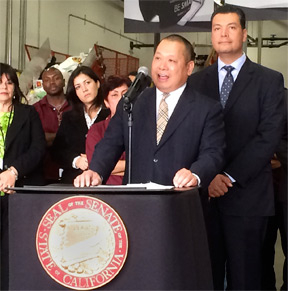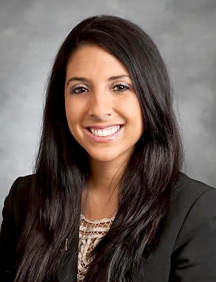Heading 2
Lorem ipsum dolor sit amet, consectetur adipisicing elit. Nostrum minus ea suscipit porro alias corporis libero at. Perferendis omnis, veniam nemo beatae vel? Tempora numquam a repellat eaque natus, magnam?
Heading 2
Lorem ipsum dolor sit amet, consectetur adipisicing elit. Autem ipsum mollitia neque, illum illo excepturi, eum incidunt fugit nostrum est, voluptate eaque minima corporis debitis at, dolores ipsam. Quaerat, dolores.
Heading 2
Lorem ipsum dolor sit amet, consectetur adipisicing elit. Autem ipsum mollitia neque, illum illo excepturi, eum incidunt fugit nostrum est, voluptate eaque minima corporis debitis at, dolores ipsam. Quaerat, dolores.
Heading 2
Lorem ipsum dolor sit amet, consectetur adipisicing elit. Autem ipsum mollitia neque, illum illo excepturi, eum incidunt fugit nostrum est, voluptate eaque minima corporis debitis at, dolores ipsam. Quaerat, dolores.
Heading 2
Lorem ipsum dolor sit amet, consectetur adipisicing elit. Autem ipsum mollitia neque, illum illo excepturi, eum incidunt fugit nostrum est, voluptate eaque minima corporis debitis at, dolores ipsam. Quaerat, dolores.
Disposable plastic bags would be banned from grocery checkout stands in California and consumers would pay at least a dime for a paper or a sturdier, reusable plastic bag a under a compromise proposal negotiated by key legislators.
An attempt to pass a bill banning the bags failed last year amid opposition from plastic bag manufacturers and concerns that the move would eliminate jobs.
Senate Bill 270 seeks to temper some plastic industry opposition by providing $2 million from state recycling funds.
Plastic bag makers would be able to apply for grants to retrain their workers or re-engineer their operations to make reusable plastic bags that meet new criteria spelled out in the bill. Despite the sweetener, at least two major plastic bag makers said they will not support the new bill.
The legislation is a joint effort by Sen. Alex Padilla – the Los Angeles Democrat who authored last year’s failed attempt – and two of his colleagues who killed that bill, Sen. Kevin de León, D-Los Angeles, and Sen. Ricardo Lara, D-Bell Gardens.
De León and Lara have plastic bag factories in their districts and said last year that Padilla’s SB 405 would have hurt their working-class constituents. But they took heat for their votes from environmentalists who say too many plastic bags litter California streets, foul its beaches and harm wildlife.
“We need to find a way to balance the health of the planet with the preservation of people’s livelihoods,” de León said. “This new bill, I believe, is a strong compromise.”
Padilla, De León and Lara engaged in intense conversations on the Senate floor this week. They plan to introduce their proposal today alongside labor and environmental leaders at the Command Packaging plant in Vernon, a bag maker whose owner is supporting the bill.
Under the proposal, only plastic bags that meet certain thresholds for containing recycled content and being strong enough for more than 125 uses would be available for sale in California. They would have to contain at least 20 percent recycled plastic, a bar that would go up over time to 40 percent, said Mark Murray, executive director of Californians Against Waste.
“We’re trying to develop a criteria for an evolving marketplace,” he said.
Consumers would pay a minimum 10-cent fee for every shopping bag, whether paper or plastic, though Murray said plastic bags that meet the new criteria likely will cost more than that.
He said 90 cities in California already ban plastic grocery bags and require a 10-cent fee for paper. The bill would let existing city regulations remain in place.
“What’s happening in those communities is that we’re seeing a reduction in paper bags,” Murray said. “The 10-cent charge is causing people not just to switch from plastic to paper, but to bring their own bags.”
Grocery stores support the idea of charging for bags; those who make them, however, have a problem with it. Charging the bag fee amounts to a giveaway to the grocery stores, which currently absorb the cost of bagging customers’ purchases, said Catherine Browne, manager of Crown Poly, a bag maker in Huntington Park.
“The money is going to the grocers – it’s going to the grocers on the back of the consumers,” Browne said.
She said she hopes to see changes to the bill that would take the money collected from the bag fees away from the store owners and instead direct it to a “public purpose.”
The bill will face stiff opposition from the nation’s largest plastic bag maker, Hilex Poly, which has contributed more than $115,000 to California politicians since 2011.
“If this bill were to pass, it would be devastating to the 2,000 workers who are participating in the manufacturing of recyclable plastic bags in California,” said Mark Daniels, a senior vice president at Hilex Poly and chairman of an industry association.
He said $2 million is far too little to help manufacturers change their product.
“A $2 million fund to retrain or retool a factory is not at all realistic,” Daniels said.
Padilla said he expects Daniels’ plastic bag association to put up a fight. But he said the changes sweeping across California cities and counties will help build support for a statewide measure.
“I think that it’s a huge help that since last year, literally dozens more cities have adopted ordinances at the local level, either to implement phase-outs of their own or to support the state policy,” Padilla said.
Despite the many local bag bans in California, Daniels said no state in the nation has passed a statewide ban on plastic bags.
“We have had discussions in Washington and Oregon, and both those statehouses have rejected them,” Daniels said.
In other states, he said, “these things don’t even get out of committee.”
De León countered that California is a leader in environmental policy and that the bill isn’t meant to suit the needs of Hilex Poly, which is based in South Carolina.
“We worked tirelessly to make sure that those California – and that’s the key word here – manufacturing facilities will have resources,” he said.
The requirements in the bill would take effect at large grocery stores in July 2015 and at pharmacies and liquor stores in July 2016.
Reprinted from The Sacramento Bee (1/24/2014)

 In this position, Hall will be responsible for supporting association operations by maintaining office systems and supporting CGA President & CEO Ron Fong. Her duties will include managing human resources for CGA an affiliated companies and foundations, organizing office operations, updating office policies and procedures, managing and maintaining association membership database, and other general office manager responsibilities. In addition, she will serve as confidential assistant to the association President & CEO.
In this position, Hall will be responsible for supporting association operations by maintaining office systems and supporting CGA President & CEO Ron Fong. Her duties will include managing human resources for CGA an affiliated companies and foundations, organizing office operations, updating office policies and procedures, managing and maintaining association membership database, and other general office manager responsibilities. In addition, she will serve as confidential assistant to the association President & CEO. Today is an extraordinary day for California. These three leaders have come together to sponsor a bill that will foster innovation, protect businesses and preserve our communities and quality of life
Today is an extraordinary day for California. These three leaders have come together to sponsor a bill that will foster innovation, protect businesses and preserve our communities and quality of life In this position, Peralta is responsible for CGA’s local government advocacy and outreach for the Southern California region. In addition, she will analyze ordinances, review regulatory proposals, draft advocacy plans, and communicate with elected officials, regulatory staff and member companies. She will also serve as CGA’s representative in Southern California on Association issues.
In this position, Peralta is responsible for CGA’s local government advocacy and outreach for the Southern California region. In addition, she will analyze ordinances, review regulatory proposals, draft advocacy plans, and communicate with elected officials, regulatory staff and member companies. She will also serve as CGA’s representative in Southern California on Association issues.